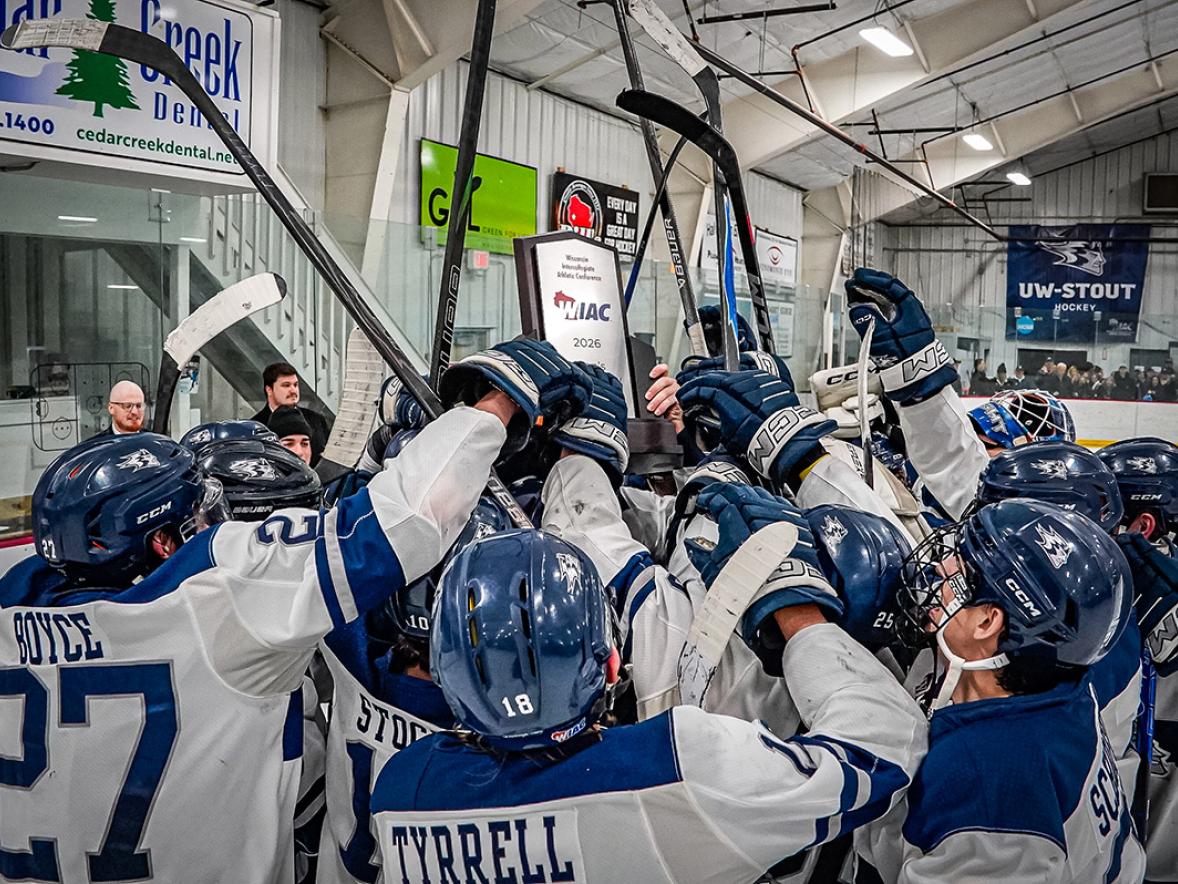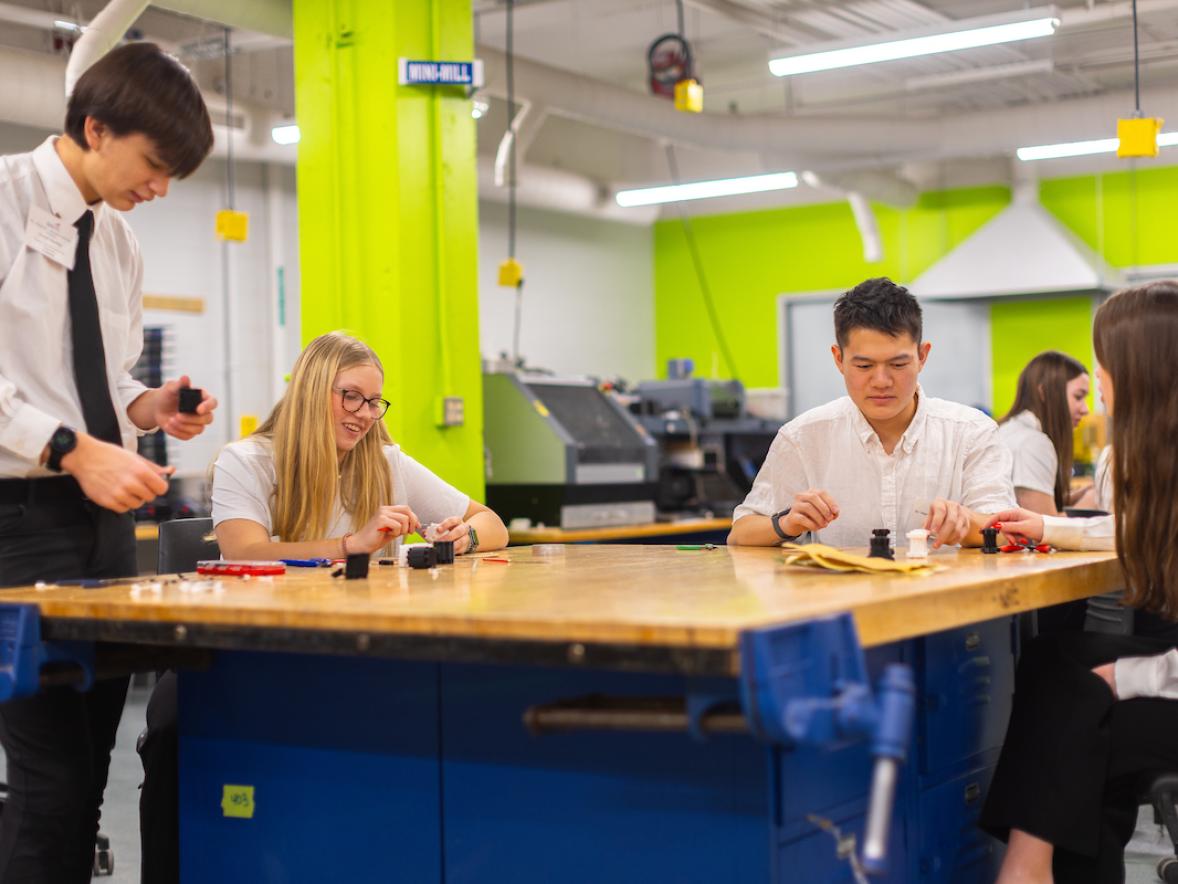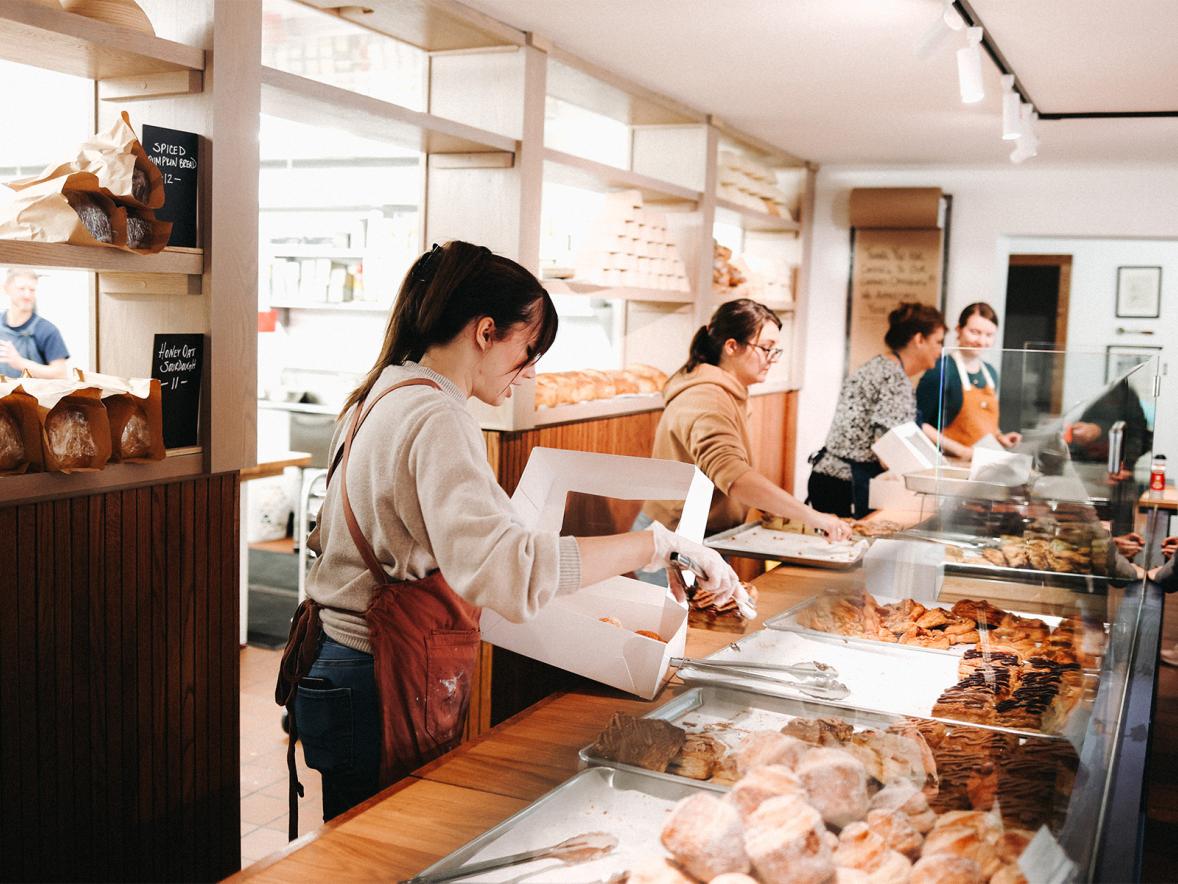An alum who turned his interests and dreams into two unexpected careers — traveling the globe working for National Geographic then becoming a full-time artist — will return to UW-Stout to speak and open an exhibit of his work.
William “Bill” Stoehr ('70) will give a keynote address from 1:15 to 2:20 p.m. on Wednesday, Sept. 13, in the Great Hall of the Memorial Student Center. He also will attend the opening of his exhibit from 4 to 6 p.m. Thursday, Sept. 14, at Furlong Gallery in Micheels Hall. Both events are free and open to the public.
Stoehr is this year’s featured Cabot Executive in Residence, which is sponsored by Stout University Foundation. His address, “Lessons from Alice in Wonderland — Risk, Reward and an Uncertain Future,” considers the questions “who are you and where do you want to go?” He will emphasize the “pursuit of balance in life and the necessary compromises it entails,” he said.
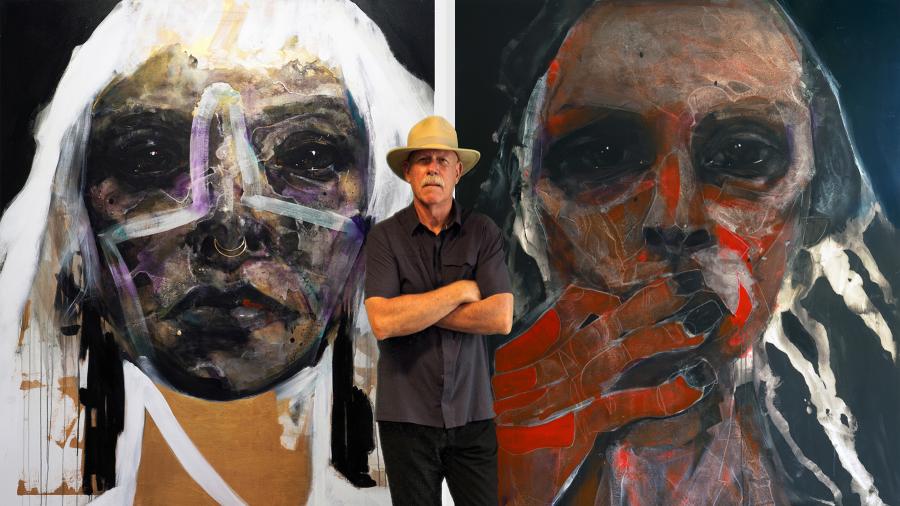
The exhibit will feature 14 of his 60-inch by 80-inch acrylic paintings, plus his digital art viewable on 11 screens. Exhibited internationally in universities, art centers, museums and galleries, Stoehr’s current focus is the award-winning Art for Hope, a collection of portraits that showcase those affected by substance use disorder.
“For me the essence of art is the exploration of fundamental issues of our time. I now focus on opioid addiction with its victims, witnesses and survivors. My job as an artist is to get you to think and to ask questions,” he said.
“We are attracted to faces – it is our nature. If I fill the canvas with a big face, then there is little room for external leading context. I think this, along with the large size and closely cropped face, creates an elevated sense of intimacy.”
The paintings — he uses brushes, paper towels and a kitchen scrubber — began with a personal mission.
“My sister overdosed and died 10 years ago. She might still be alive if weren’t for prescription opioids and the stigma that surrounds addiction. The first step toward alleviating stigma is to normalize the discussion, get people to talk about it and then help people understand that substance use disorders are a treatable medical condition and not a moral failing. And understanding where to get help. Stigma became my focus. My exhibits are a forum for education and communication. A place where you can come for the art but stay for the message,” Stoehr said.
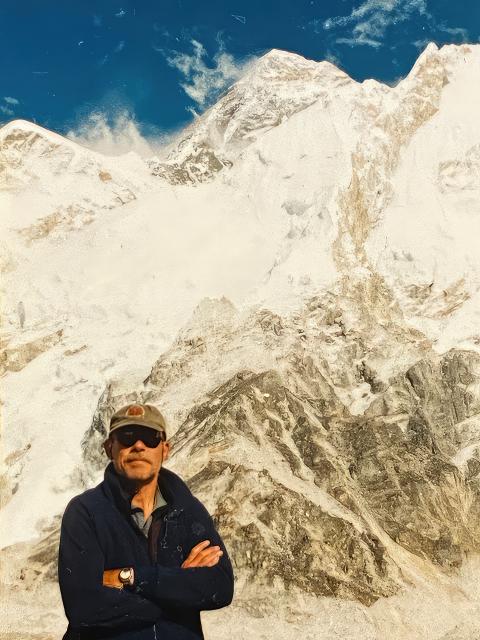
The digital magazine Artmoire says Stoehr’s paintings “are beautifully disturbing. He takes our natural and predisposed attraction to faces and uses this to arouse profound and penetrating emotions within us.”
A technology background at UW-Stout
Stoehr lives in Boulder, Colo., with his wife, Mary Kay Stoehr, formerly Mary Kay Merkowitz, a 1971 home economics graduate. They met at UW-Stout in 1967 in a lunch line.
He grew up in southeastern Wisconsin, in Burlington, and was interested in art but majored in industrial technology. “Stout academics aligned perfectly with my positions and career path from the very beginning and even throughout my career with National Geographic,” he said.
He competed in track (sprints) and cross country for the Blue Devils, captaining both teams, and was a student government senator, chair of the Campus Elections Committee and on the Intrafraternity Council.
His degree led to a series of jobs in manufacturing and engineering, including manager positions in engineering, production, strategic planning, international sales, marketing and quality assurance. He received a Master of Business Administration from the University of St. Thomas, did post-graduate work at Marquette University and was a doctoral program resident at the J.L. Kellogg School at Northwestern University.
With a personal interest in mountain biking, he and Mary Kay decided “for fun” to create the first two mountain biking guides to Colorado. In the process, he learned the art of map-making.
They became map-makers, and their company Trails Illustrated was bought in 1997 by the National Geographic Society. He rose to president of mapping for National Geographic, overseeing production of maps, map atlases, globes, digital maps and more that were sold around the world and that appeared in the magazine. They have traveled around the world and several times to remote areas in Alaska and Nepal.
In 2004, still inspired by some of the artists he followed as a teen, Jackson Pollack and Willem de Kooning, Stoehr took up art for his next career.
“I set aside my resume and redeployed as an artist. I loved art and I wanted to be an artist when I was 16, and so why not do what I wanted to do as a kid? We just took a risk and just did it — that is the lesson, I followed a dream,” he said.
Cabot Executive in Residence program
Along with the keynote address and exhibit opening, Stoehr will meet with Blue Devil athletes, speak in several classrooms, meet with the Chancellor’s Coalition on Alcohol and Other Drug Abuse and attend the Stout University Foundation annual scholarship reception Sept. 14.
This is the 38th year of the Cabot Executive in Residence program, which is named in honor of Arthur R. Cabot, a successful pet products manufacturer. His son, Scott Cabot, earned a bachelor’s degree from UW-Stout in 1978 and a master’s in 1979.
Recent Cabot executives have included alumni Todd Wanek, president and CEO of Ashley Furniture Industries; Stephen Marcus, chairman of Marcus Corp.; and alumna Shelly Ibach, CEO of Sleep Number.
A Cabot Wall of Honor, featuring plaques of previous Cabot presenters, was established in 2014 in Jarvis Hall.
The event is being coordinated by UW-Stout Continuing Education and Conferences.
###





